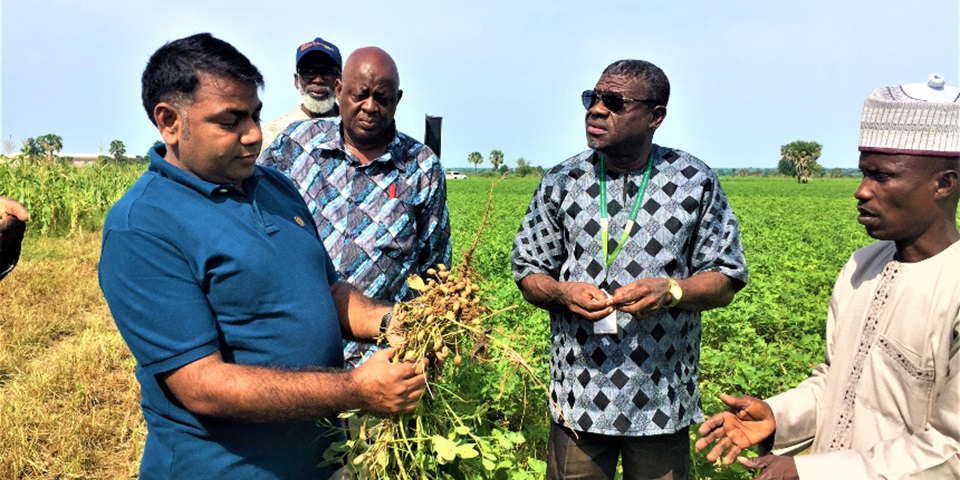News
New pangenome analysis uncovers genetic key to larger peanut yields

Researchers from Australia and China have identified crucial structural variations that determine seed size and weight in peanuts, paving the way for the development of higher-yielding crop varieties.
Comprised of researchers from Murdoch University, Henan Agricultural University, Shanghai Jiao Tong University and the Shandong Academy of Agricultural Sciences, the team of scientists have assembled a pangenome of peanut that will serve as a fundamental resource for the genetic enhancement of legume crops.
The study, published in Nature Genetics, assessed the genome-wide diversity of 269 peanut accessions, including wild species, landraces and improved species. The researchers found significant genomic variations and highlighted trait-related variations that affect seed size and weight, two of the most critical traits that affect peanut yield.
The study traced back the evolution of domesticated peanut varieties from their wild relatives, discovering that the gene likely responsible for regulating cell division – and therefore yield size – was absent in all 61 wild species analysed.
In a groundbreaking first, the researchers also discovered that the gene Aharf2-2 negatively regulates seed size, and that the deletion of this gene makes seeds bigger.
Speaking on the findings, Professor Rajeev Varshney, Director of the Centre for Crop and Food Innovation at Murdoch University and Corresponding Author of the study said:
“Despite the global importance of peanuts, our understanding of the molecular mechanisms and evolutionary factors that influence peanut pod size and weight has been very limited, until now.
"This study offers the most comprehensive genomic variation resource of peanuts to date and will be an invaluable tool for peanut breeding and crop breeding efforts going forward.”
Murdoch University Pro-Vice Chancellor and Director of the Food Futures Institute, Professor Peter Davies, added that:
“This research is a remarkable achievement that offers extensive insights into the structural variations and molecular mechanisms that are responsible for seed size and weight.
"What makes this especially exciting is that it offers new information that can be applied to numerous crops of economic importance, such as cotton and rapeseed.
"Congratulations to all the contributing authors for this essential contribution to crop improvement efforts.
"Special recognition goes to Professor Varshney for his role in conceiving and designing the study: this paper marks his 29th inclusion in the Nature portfolio and demonstrates the impact he continues to make in the fields of crop improvement and molecular breeding.”
Full details of this study and its implications can be found in Nature Genetics.
Background
This study is the result of a joint effort between scientists from Murdoch University’s Centre for Crop & Food Innovation; the College of Agronomy, Henan Agricultural University, China; the School of Life Sciences and Biotechnology, Shanghai Jiao Tong University, China; and the Institute of Crop Germplasm Resources, Shandong Academy of Agricultural Sciences, China.
The team generated a comprehensive pangenome for both wild and cultivated peanuts, encompassing two diploid wild species, two tetraploid wild species and four tetraploid cultivated species. They assessed the genome-wide diversity of 269 peanut accessions, including wild species, landraces and improved species, and conducted structural variation-genome wide association studies to investigate agronomic traits related to yield.